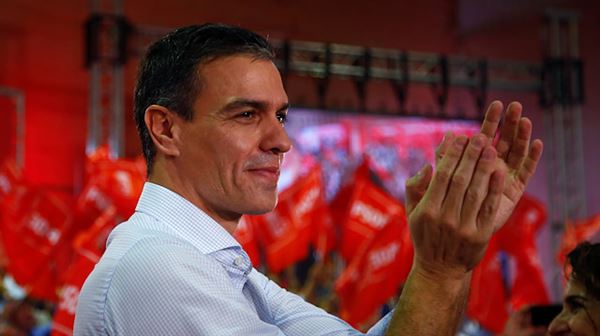Monday night, five of Spain’s candidates for prime minister will battle it out in a televised debate that could be decisive in next Sunday&rsquo
Monday night, five of Spain’s candidates for prime minister will battle it out in a televised debate that could be decisive in next Sunday’s general elections.
Pedro Sanchez, Spain’s acting Socialist Party premier, is expected to be the main target of the other candidates due to his inability to form a government after Spain’s last general elections this April, over six months ago.
Spain’s debate stage is more crowded than ever. This will be the first time the far-right Vox party, led by Santiago Abascal, will debate alongside mainstream national candidates. Vox was invited because of the party’s success in April.
Also taking the stage will be Pablo Iglesias of the far-left Unidas Podemos party, Pablo Casado of the right-wing Popular Party, and Albert Rivera of the center-right Ciudadanos party.
As recently as 2011, only two candidates (from the Popular Party and Socialist Party) took part in televised debates. This five-party debate shows the new, increasingly fractured reality of Spanish politics.
Sunday’s election will mark the fourth time in as many years Spaniards have been called to vote in national elections.
This inability to form a stable government will be one of the main issues up for debate tonight, along with the economy, social policy, Catalan separatism, and international relations.
The debate begins in Spain’s typically late prime time slot – 10 p.m. (2100GMT). Each candidate will have around 25 minutes to speak. According to Spanish daily El Mundo, after the debates last April, 7.1% of Spaniards changed their minds about who they would cast ballots for.
Polls show a tight race. They suggest that the Socialists are in the lead but nowhere near winning a majority, meaning Sanchez will need to pact to form a government – something he was unable to do after April’s vote.
Far-right Vox is also predicted to surge in seats after Sunday’s vote. In April, it won its first 24 seats in Spain’s Parliament, but several polls suggest the party will at least double that number, mostly at the expense of the more moderate right-wing parties.
